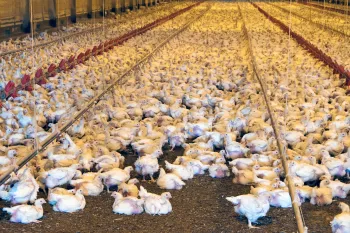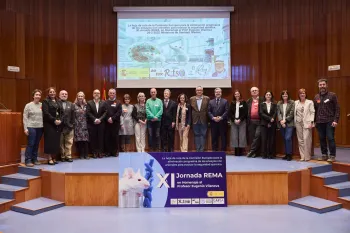BELEM, Brazil— A pioneering framework to help financial institutions align their financing and investment activities with sustainable food systems that prioritize plant-based foods has been launched at the UN Climate Change Conference in Brazil by a coalition called the FARMS Initiative. Comprising Humane World for Animals, World Animal Protection and Compassion in World Farming, the FARMS Initiative announced the release of its Responsible Minimum Standards for the Protein Shift at an official side event. The standards provide a practical roadmap for mitigating the climate, biodiversity and public health risks associated with animal agriculture while supporting a just transition toward sustainable protein sources.
Globally, over 94 billion terrestrial animals are farmed and slaughtered annually for food. Animal agriculture drives at least 16.5% of human-induced greenhouse gas emissions, on par with all forms of transport combined, and is among the leading causes of deforestation, biodiversity loss and antimicrobial resistance. Reducing financial exposure to animal-based proteins is critical to achieving the Paris Agreement’s goal of limiting global warming to well below 2°C, safeguarding ecosystems, ensuring global food and nutrition security, and reducing the suffering of farmed animals.
The Protein Shift RMS defines four core opportunities for financial institutions to advance the protein transition:
- Acknowledgement – Publicly recognize that shifting from animal-based to plant-based and alternative proteins is essential for achieving climate, health and biodiversity goals.
- Objectives – Set measurable targets aligned with net-zero pathways and the EAT-Lancet recommendations of shifting towards a predominantly plant-based eating pattern for sustainable diets.
- Strategy – Reallocate capital, engage portfolio companies and avoid financing systems or technologies that entrench intensive animal agriculture.
- Monitoring and reporting – Publicly disclose progress on protein shift objectives and portfolio allocations.
These standards encourage financial institutions to focus engagement on companies with genuine transition potential while avoiding investments in practices that perpetuate unsustainable systems, such as large-scale biomethane or insect feed production for industrial animal agriculture operations. This forms the second of two sets of standards drafted by the FARMS Initiative, the first of which―the Animal Welfare RMS―outlines minimum expectations for how six species of farmed animals are raised, transported and slaughtered, thus offering a comprehensive approach for integrating both animal welfare and more sustainable food systems into financial decision-making.
Kelly Dent, director of external engagement, World Animal Protection, said: “Animal agriculture is a major contributor to the climate, nature, and health crises we face. The Protein Shift RMS helps financial institutions manage these risks and invest in food systems that are better for animals, people, and the planet.”
Peter Stevenson OBE, chief policy advisor, Compassion in World Farming, said: “To avoid climate disaster, there needs to be a major reduction in meat consumption in upper- and middle-income countries. Financial institutions must help finance a move to flexitarian diets containing protein-rich plants such as beans and soy products. They should also fund the development of precision fermentation which the UN Food and Agriculture Organization notes is paving the way for food industry transformation.”
Jackie Groberski, CFA, director of corporate and financial institution engagement, Humane World for Animals, said: “Financial institutions play a pivotal role in shaping the future of food, which comes with the responsibility to do it right. By adopting the Protein Shift RMS, institutions can take practical, credible steps to finance the future of plant-forward food systems, aligning with global sustainability goals while advancing animal welfare, encouraging the necessary shift to more planet-friendly plant-proteins, and ultimately, improving food security for all.”
These standards encourage financial institutions to focus engagement on companies with genuine transition potential while avoiding investments in practices that perpetuate unsustainable systems, such as large-scale biomethane or insect feed production for industrial animal agriculture operations.
ENDS



